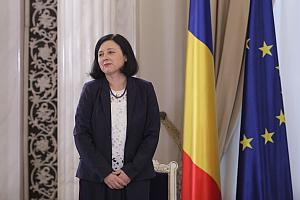Reporters Without Borders: Press in Romania lacks transparent funding, independence

On the occasion of World Press Freedom Day, Reporters Without Borders (RSF) presented the situation of journalism worldwide, including in Romania, where it found that the press lacks independence, transparent funding, and adequate protection from interference.
Based in Paris, Reporters Without Borders is a non-profit NGO that promotes and defends the freedom to be informed and to inform others throughout the world. To that end, RSF puts together an annual report looking at the state of the press in 180 countries and territories, analyzing the journalists' ability to publish news of public interest without threats to their safety.
According to the latest report, press freedom is in a precarious state in numerous countries. 31 of the evaluated countries – an increase relative to the previous year – including India and Turkey, are "in a very serious situation."
Romania climbed three positions to rank 53 this year. Despite the fact that it boasts a “diverse and pluralistic media landscape,” the country lacks transparency when it comes to media funding, especially from public funds. The number of print media institutions in Romania is decreasing, while online media institutions and radio and television channels are expanding, which allows for media to be transformed into an instrument for propaganda, warns RSF.
The report also emphasizes that the press in Romania "lacks independence" and faces interference from the political sphere, especially in the appointment of heads of public radio and television, as well as those in the National Audiovisual Council. The legislation protecting the press and freedom of expression is insufficiently applied, the report further states, even though officially it is in accordance with European standards, including at the constitutional level. Even more worryingly, the judicial system tries to force the media to reveal their sources.
“Large companies manage to be independent, but most journalists depend on external sources of funding," RSF emphasizes.
Propaganda and fake news flourished online during the COVID-19 pandemic, and a multitude of fake news was picked up by media institutions and politicians, which decreased their credibility. Journalists are often the target of threats, attacks, and smear campaigns, and in the current situation of the war in Ukraine, "intelligence services are trying to gain more power and influence."
Norway is at the top of the press freedom ranking for the seventh consecutive year, followed by Ireland.
Russia, which already dropped in the ranking last year after the invasion, fell another nine positions in 2023. Propaganda in the online environment has become more intense due to the war in Ukraine, RSF found. Last month, Moscow arrested reporter Evan Gershkovich, the first American journalist detained in Russia on espionage charges since the end of the Cold War.
The RSF notes that rapid technological advances also allow governments to distort reality, and false content is easier to publish.
(Photo source: Dreamstime.com)













